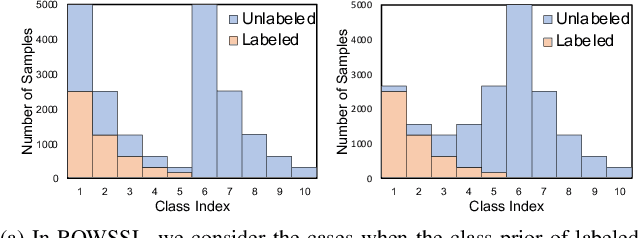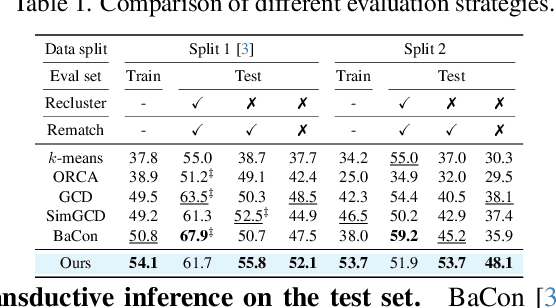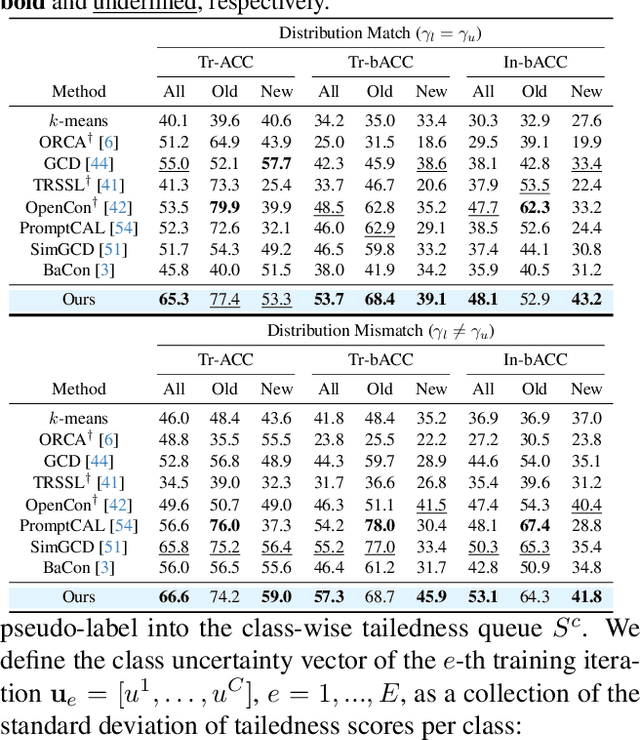Hyuk Kwon
Rethinking Open-World Semi-Supervised Learning: Distribution Mismatch and Inductive Inference
May 31, 2024



Abstract:Open-world semi-supervised learning (OWSSL) extends conventional semi-supervised learning to open-world scenarios by taking account of novel categories in unlabeled datasets. Despite the recent advancements in OWSSL, the success often relies on the assumptions that 1) labeled and unlabeled datasets share the same balanced class prior distribution, which does not generally hold in real-world applications, and 2) unlabeled training datasets are utilized for evaluation, where such transductive inference might not adequately address challenges in the wild. In this paper, we aim to generalize OWSSL by addressing them. Our work suggests that practical OWSSL may require different training settings, evaluation methods, and learning strategies compared to those prevalent in the existing literature.
 Add to Chrome
Add to Chrome Add to Firefox
Add to Firefox Add to Edge
Add to Edge